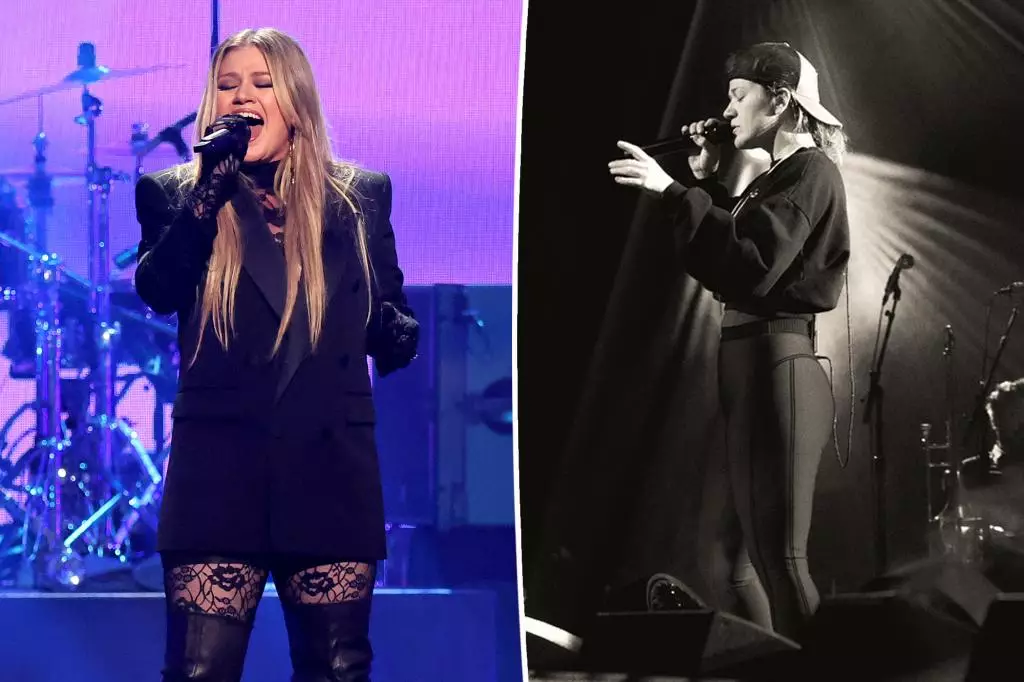The recent cancellation of Kelly Clarkson’s Las Vegas residency opener demonstrates an ongoing tension between artistic integrity, personal health, and fan expectations in modern entertainment. Clarkson, a celebrated artist known for her resilience and vocal prowess, had to abruptly postpone her performances just moments before showtime, citing vocal strain. This incident exposes a deeper issue: how do we reconcile the necessity of artist self-care with the fiercely demanding expectations placed on performers, especially in an industry that pushes relentless schedules and high stakes?
Clarkson’s case highlights an uncomfortable truth—artists are often placed under colossal pressure to deliver perfect performances, sometimes at the expense of their well-being. While fans demand flawless entertainment, the toll such intensity can take on an artist’s health is frequently underestimated. Clarkson’s decision to prioritize her voice, despite the inconvenience it caused her fans, underscores a willingness to endure short-term disappointment for long-term sustainability. Her transparency about vocal fatigue resonates with the broader conversation about mental and physical health in high-performance industries, emphasizing that artistic talents are not invincible.
Fan Discontent and the Financial Burden of Live Events
Not surprisingly, Clarkson’s last-minute cancellation stirred up significant frustration among concert-goers, some of whom had traveled great distances and invested substantial amounts of money in tickets, accommodations, and transportation. The outcry for accountability reflects a pressing issue—the need for clearer policies around event cancellations and the establishment of consumer protections.
Many fans expressed disappointment, emphasizing that last-minute cancellations are damaging not just to morale but to financial investments. A common sentiment is that artists and organizers should be held responsible in some form, whether through refunds, rebooked tickets, or insurance policies that mitigate such risks. In an era where ticket prices are soaring, the expectation of reliability and accountability becomes more pressing. Fans are not just passive spectators; they are paying consumers whose commitment and financial sacrifices deserve respect.
Clarkson’s team, and ultimately the industry, must consider developing more structured policies that balance artist well-being with consumer rights. This could involve mandatory refunds, contingency plans, or clear communication protocols to manage last-minute changes without alienating fans or damaging trust.
The Human Element in the Performance Equation
What makes Clarkson’s situation particularly compelling is her candid acknowledgment of her physical condition and her commitment to delivering a top-quality performance once she recovers. Her emphasis on protecting her voice reveals a mature understanding that artistry depends on health. It’s a reminder that behind the glamorous veneer of live shows lies a human being whose longevity and well-being are paramount.
While fans may be disappointed, many also recognize the importance of self-care. Supporters who vocalized understanding and respect for Clarkson’s decision demonstrate a shift in industry culture—one that increasingly values authenticity and the health of performers over fleeting moments of spectacle. This attitude could foster a more sustainable model for live entertainment, where artist wellness is prioritized without sacrificing the audience experience.
Clarkson’s honesty sets a precedent, urging both fans and the industry to rethink the standards of performance and the ethics of booking commitments. It calls upon us to view artists not as commodities to be exploited for entertainment but as humans deserving of care and respect.
The Broader Implications for Industry Standards and Personal Sacrifice
This incident also prompts a broader reflection on the often-overlooked sacrifices artists make behind the scenes. Clarkson’s reflection about her busy schedule—balancing her talk show, touring, and personal life—exposes the relentless juggling acts that define modern celebrity life. Her candidness about her struggles humanizes her and invites a more compassionate understanding of the challenges performers face.
In an industry driven by relentless schedules, commercial pressures, and constant public scrutiny, the line between personal sacrifice and unhealthy overextension often blurs. Clarkson’s decision to pause and rest, rather than push through at the risk of irreversible damage, demonstrates the necessity of respecting one’s physical limits. For fans and industry insiders alike, her choice should serve as a reminder that sustainable success depends on honoring the human side of artistry.
While some may criticize her for cancellations or perceive them as signs of weakness, her stance champions a healthier paradigm—one that recognizes that quality comes not just from relentless effort but from strategic self-care. Her example could inspire industry reforms that support artists’ health, ultimately leading to more authentic performances and longer careers.
Ultimately, Clarkson’s last-minute withdrawal from her residency underscores an urgent need for the entertainment industry to rethink its priorities. The respect for an artist’s health, combined with transparent communication and consumer protections, should become central pillars of the live performance landscape. Fans who genuinely care about the art will understand that true greatness stems from well-being and authenticity—not from pushing oneself to the brink. Moving forward, this incident could catalyze meaningful change—championing an industry where artists are valued as much for their humanity as for their talent.
